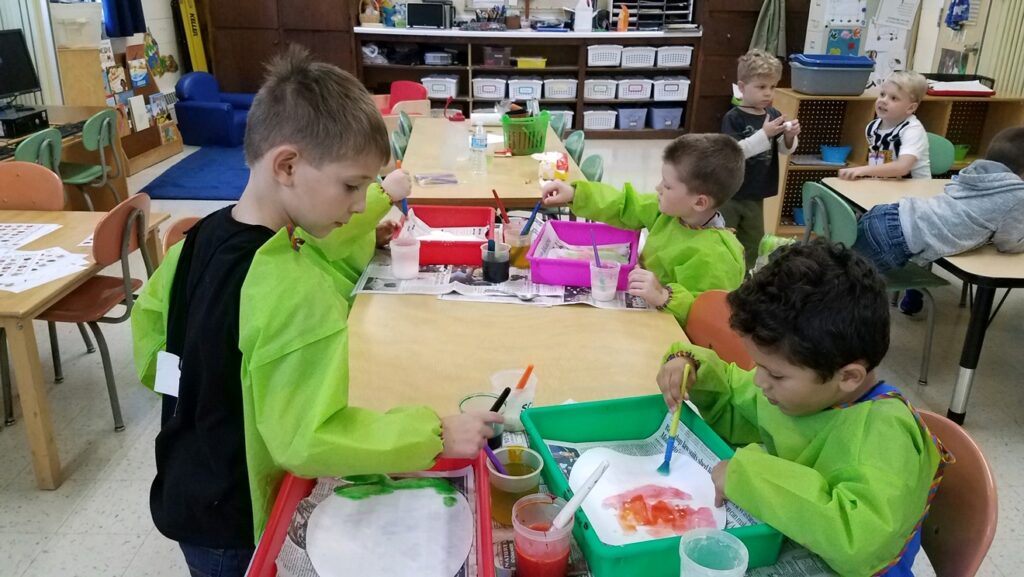
Some parents are looking for a transitional program to meet the special needs of students who are younger and may have just missed the age requirements of their local public school, but have already been through two years of preschool programs. This is the special need that our class will provide. We are able to offer smaller classes and will be able to meet the individual needs of our students. An added benefit will be the option of onsite before and after school child care.
Our goal will be to educate our students, starting where they are and moving them toward success in all areas of learning. This program will give our students the extra year of emotional and social growth needed to be successful when they enter the public kindergarten classroom.
Yearly Tuition ($7,200), a Book Fee, and supplies.
Research indicates that kindergarten readiness and success beyond the primary grades increases when children are older as they enter kindergarten. As Cannon and Lipscomb* have stated in their research, “Students who are older when they enter kindergarten have better elementary math and reading scores . . . These effects appear to persist into eighth grade, albeit with smaller magnitudes.”
Starting kindergarten at an older age allows children to further develop their social and emotional skills and be ready to actively engage
in academics. Because of the increasing academic demands placed on kindergarten students, there is less time to nurture social and emotional skills. Deficiencies in these areas tend to inhibit learning in younger kindergarten students, which causes them to fall behind academically. Durlak** and his colleagues state, “Emotions can facilitate or impede children’s academic engagement, work ethic, commitment, and ultimate school success.” By the time these same students enter first grade, they are more likely to be considered for retention, receive interventions, or be referred for special education testing.
NOTES:
*Cannon, J. S., and S. Lipscomb. 2008. Changing the Kindergarten Cutoff Date: Effects on California Students and Schools. San Francisco: Public Policy Institute of California. http://www.ppic.org/main/publication.asp (accessed July 29, 2013).
**Durlak, J. A., R. P. Weissberg, A. B. Dymnicki, and K. B. Schellinger. 2011. “The Impact of Enhancing Students’ Social and Emotional Learning: A Meta-Analysis of School-Based Universal Interventions.” Child Development 82 (1): 405–32.